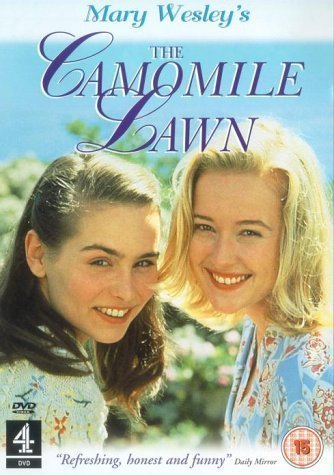What do you think?
Rate this book


336 pages, Paperback
First published January 1, 1984
"too many lovers, too much to drink... I was on my way to become a very nasty person"I'm glad Mary got a hold of herself!

I requested this book from Net Galley in exchange for an honest review. Thanks to Open Road Media to allow me to read the eBook version of this book.
In the beginning of this book, five cousins - Calypso, Walter, Polly, Oliver, Sophy and the twins - are spending their holiday in their aunt house in a town in Cornwall. Their favorite place during this last summer holiday before the beginning of World War II was the beautiful camomile lawn.
Even if the Great War is used as a historical background, the author describes this family saga in a way that the reader gets involved with the main characters and their entwined lives.
The story if full of love, lust, regret and guilt and Mary Wesley managed quite well to go deeper in the feelings of this family.
The first time I have heard about this book was during a BBC Radio 4 dramatization, which the first broadcast, was in October 2007. By coincidence, this series is available again at BBC Radio 4 Extra.
About the author. It is amazing to know that she published her first adult novels when she was 70-years old. Before that, she wrote children's books, namely "Speaking Terms", "The Sixth Seal" and "Haphazard House". Now I am planning to read "A Sensible Life" which was published in 1990.

The Roseland Peninsula, Cornwall, UK  City of Penzance, Cornwall
City of Penzance, Cornwall
A TV series The Camomile Lawn (1992) was made based on this book. 